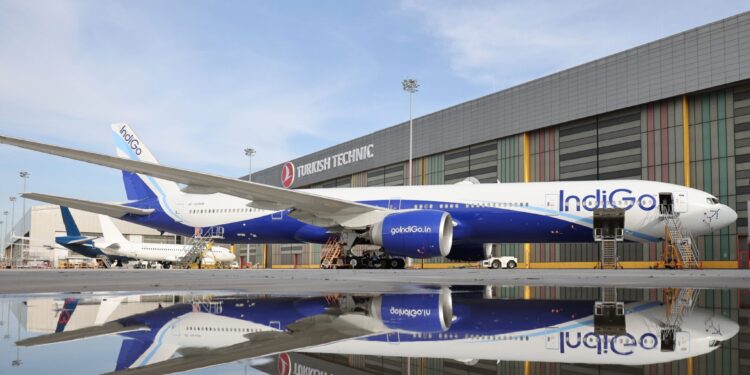Introduction
India’s largest airline, IndiGo, has been directed by the Directorate General of Civil Aviation (DGCA) to terminate its wet lease agreement with Turkish Airlines by August 31, 2025. This follows the aviation regulator’s decision to reject IndiGo’s request for a six-month extension, instead granting a final three-month grace period to conclude the arrangement. The move is seen as a result of rising political sensitivities and domestic industry concerns surrounding foreign airline collaborations.
Background of the Lease Agreement
In early 2023, IndiGo entered into a wet lease agreement with Turkish Airlines to operate two Boeing 777 wide-body aircraft on routes connecting Delhi and Mumbai to Istanbul. Wet leasing allows an airline to lease aircraft along with the crew, maintenance, and insurance (ACMI), a model often used for short-term capacity boosts.
For IndiGo, a narrow-body Airbus operator, this lease was a strategic step to enter the long-haul segment without acquiring or training for wide-body aircraft, thereby expanding its international footprint.
Reasons for DGCA’s Intervention
The DGCA’s decision to limit and now end the lease is influenced by a combination of regulatory, strategic, and geopolitical factors:
1. Geopolitical Tensions: The Indian government is said to be uncomfortable with Turkey’s political alignment with Pakistan, especially on Kashmir-related matters. This has fueled skepticism about deepening aviation ties with a Turkish state-backed carrier.
2. Domestic Airline Opposition: Competitors, particularly Air India, reportedly raised objections, arguing that the lease gives Turkish Airlines unfair advantages in Indian airspace. Air India, now under the Tata Group, is actively reclaiming long-haul market share and may benefit from a level playing field.
3. Regulatory Limits: India’s civil aviation policy only allows wet leasing under strict conditions, primarily to meet short-term capacity requirements. Prolonging such agreements beyond a year is discouraged to prevent dependency on foreign carriers.
IndiGo’s Position and Response
IndiGo had requested a six-month extension, citing operational stability and passenger convenience. The airline argued that the leased aircraft had been crucial in offering premium, wide-body travel options and boosting connectivity between India and Europe via Istanbul.
However, the DGCA responded by stating that only a “last and final” three-month extension would be granted, effective until August 31, 2025. The airline has formally committed in writing not to seek further extensions.
In a statement, IndiGo confirmed its compliance with the directive and noted that it will explore alternative ways to serve its long-haul routes and ensure minimal disruption to passengers post-termination.
Impact on Passengers and Future Plans
The lease termination will impact IndiGo’s Istanbul routes, which were popular among travelers transiting to Europe. With the leased Boeing 777s returning to Turkish Airlines, IndiGo will need to revise its fleet strategy if it intends to maintain long-haul services.
Industry analysts suggest the airline may either:
Enter into new code-share agreements,
Consider dry leasing (without crew) in the future, or
Invest in its own wide-body aircraft—a long-debated step in its growth strategy.
Conclusion
The DGCA’s firm stance on the Turkish Airlines lease underscores the increasing intertwining of aviation policy with geopolitics and national industry strategy. While IndiGo has benefitted from the wet lease model in the short term, this episode may mark a turning point in how Indian airlines plan their international expansions, with a renewed focus on self-reliance and regulatory alignment.
As the August 31 deadline approaches, the aviation sector will be closely watching how IndiGo recalibrates its operations and whether this development triggers a broader policy review on foreign carrier collaborations.







































